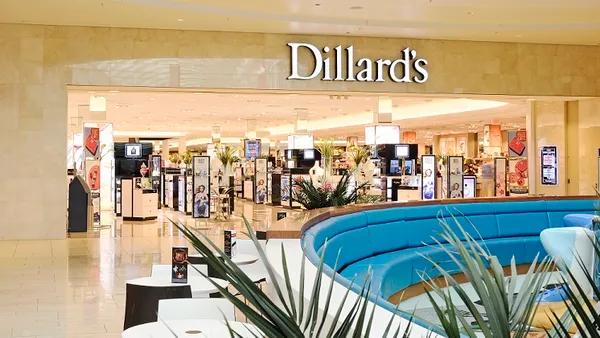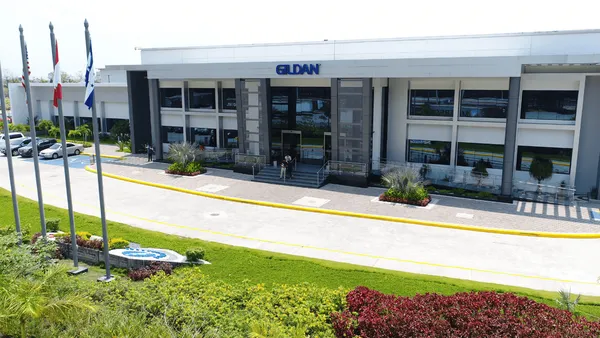Dive Brief:
- With Forever 21 looking to close up to a third of its domestic footprint in bankruptcy, some $690 million in sales is "up for grabs" in the teen and young adult apparel market, according to a recent note from B. Riley FBR analysts led by Susan Anderson.
- The analysts think American Eagle Outfitters, Express and Abercrombie & Fitch, as well as the latter's Hollister label, are "most poised to benefit" from Forever 21 closures. American Eagle and Express share the most overlap with the bankrupt retailer's store base, and American Eagle in particular has a "strong product offering and attractive value proposition," the analysts said.
- Gap and Urban Outfitters could benefit as well. Fast-fashion player H&M (which B. Riley doesn't cover) is also "likely to gain a significant amount of market share," the analysts said in the note, which was emailed to Retail Dive.
Dive Insight:
Forever 21 at its peak did more than $4 billion in sales, drawing in fast-fashion shoppers with low prices. But the company expanded too fast, especially internationally, stretching its supply chain thin and struggling to gain traction with shoppers, according to the retailer's restructuring officer, Jonathan Goulding of Alvarez and Marsal.
Goulding maintains that Forever 21 has a price and style advantage over even other low-price peers in the segment. He called out H&M, Urban Outfitters and American Eagle specifically. "Unlike other brands' merchandise at a similar price point, Forever 21's merchandise is more similar in style to premium, more expensive lifestyle brands," he said in court papers soon after the retailer filed for Chapter 11.
Seeing that advantage, Forever 21 aims to wind down much of its international footprint and focus on the U.S. and Latin America. But several retail observers think the retailer's problems run deeper, with younger shoppers drifting to Zara, H&M and resale, while some say many of Forever 21's stores are out of date and located in struggling malls.
All of that provides a potential opportunity for Forever 21's competitors. And they wouldn't be the first in recent retail history to take advantage of a competitor on the ropes. J.C. Penney jumped into appliance sales to try and capture Sears customers cast off in its frenetic store closing ahead of bankruptcy. (Penney has since begun to exit appliances under a new CEO.) But Penney may also have suffered from Sears closures, as it shared many of the same malls as its rival and often acted as co-anchor.
Kids apparel retailer The Children's Place also specifically targeted Gymboree's shoppers after the latter went through a Chapter 11 that included hundreds of closures. After Gymboree liquidated, Children's Place has captured lost market share — and also grabbed the Gymboree brand in a bankruptcy auction. Yet Children's Place also took a hit as the liquidation sales ate into the retailer's profits.
Wolfe Research analyst Adrienne Yih wrote in an August note about Children's Place that "the quarter post the 'go-dark' of a competitor is often one of the worst comp and margin quarters the surviving company will encounter." As Yih explains, demand pulls back, customers hold on to their expectations of liquidation-level prices, and competitors go to battle for the retailer's lost market share.
It's a good reminder that the bankruptcy or wind-down of a competitor can be a mixed blessing.













